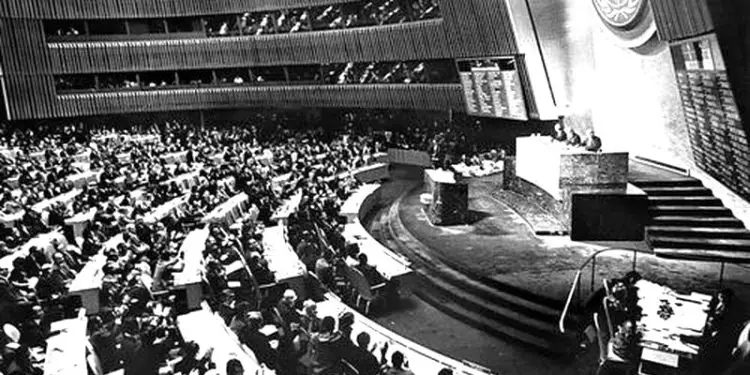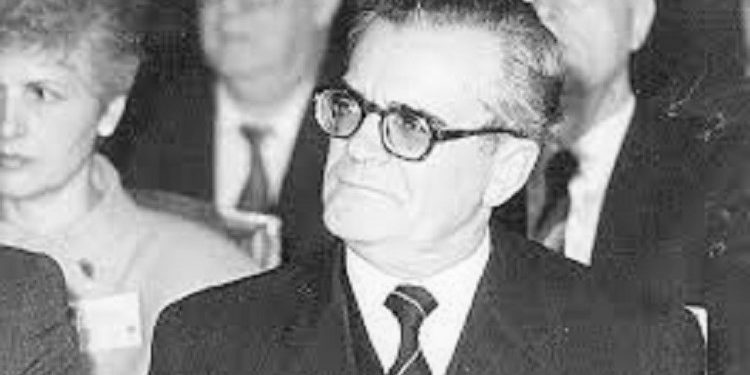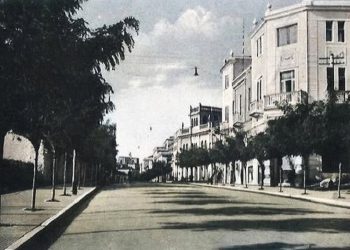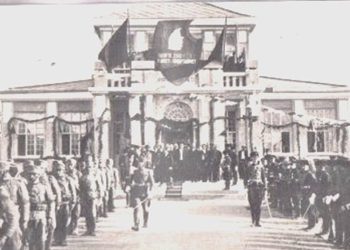By PAUL LEWIS
-The scenario that brought the UN chief, Perez De Cuellar, to Albania-
Memorie.al / United Nations officials and diplomats said today that the UN Secretary-General has agreed in principle to visit Albania, the last bastion of Stalinism in Europe, a country accused of serious human rights abuses. Secretary-General Javier Perez de Cuellar was invited by Albania’s Foreign Minister, Reis Malile, when he attended the UN General Assembly in October. It is the first time that Albania has invited the UN chief to make an official visit.
Invitation for the UN Chief
The invitation will be made to Mr. Perez de Cuellar, one of the most senior foreign officials that Albania has recently welcomed. Albania’s representative to the UN, Bashkim Pitarka, confirmed the invitation and its acceptance by the Secretary-General, saying that the invitation reflects “the high regard that the Albanian government has for Mr. Perez de Cuellar and its desire to ‘cooperate very closely with all United Nations structures.'”
“There is no fixed date yet, but ‘the visit could be in May, when the Secretary-General is also scheduled to travel to Czechoslovakia and Hungary,'” UN officials said.
Rejection of Democratization
Albania’s offer of an invitation to the Secretary-General comes after its open rejection of the comprehensive democratic changes in the Soviet Union and Eastern Europe earlier this month and its declaration that it will continue to be faithful to its own path of repressive Marxism.
The invitation also comes after the publication of recent reports that authorities have brutally suppressed all riots and demonstrations inspired by the political changes in Southeast Europe.
In a New Year’s speech, the Albanian leader, Ramiz Alia, said that the popular uprisings that have ended against the Communist Parties in Eastern Europe will not affect his country, because the government strictly serves the Marxist line. “Therefore, as yesterday, and today, but also in the future, we will follow it faithfully,” he said.
When Albania celebrated its national day on January 11, the daily newspaper of the Communist Party, “Zëri i Popullit,” accused Albanians in exile of expressing dissatisfaction and said that they are trying to restore the monarchy.
The newspaper does not accept being called “a slide on the capitalist road, perestroika, and bourgeois reformism,” calls that are “inconceivable for our party and our people!”
Reports of Riots
Earlier this month, Yugoslav newspapers reported that a critical situation had been declared in the northern city of Shkodra, following popular protests there and the security measures that had been taken around the residence of the communist leaders in the capital. An Albanian border guard had fled to Greece last week.
It was also reported that the army and police had opened fire on demonstrators in Shkodra and that similar riots were also occurring in Korça and Saranda. Albania is under the observation of the United Nations Commission on Human Rights.
Human rights experts say that moreover, antigovernmental changes could happen this year, as a result of the recent riots.
Western diplomats believe that Albania’s decision to invite the UN Secretary-General further marks the increase in the gradual opening toward the world, which has been on the path of Europe’s most isolated country since the death of the hardline leader, Enver Hoxha, in 1985.
Some new trade ties
After having no contact with most of the world’s states for many years, Albania has started to develop some limited trade ties with Austria, Italy, West Germany, and Britain. Last January, this country hosted a meeting of the deputy foreign ministers of the Balkan states.
During this year, the Foreign Ministers of the Balkan states—Greece, Turkey, Bulgaria, Yugoslavia, and Romania—will meet in Tirana.
When he gave his speech at the General Assembly in October, Foreign Minister Malile expressed his position, which he called “the process of Balkan cooperation,” saying that Albania now wanted to establish close ties with its neighbors. But in his speech, he gave great importance to the Yugoslav aggression, for the persecution of ethnic Albanians (in Kosovo, – Red.’s note).
Albania has also invited some of the heads of the specialized agencies of the United Nations to visit the country in recent years, including Dr. Nafis Sadik, who heads the UN Agency for Family Planning, and Edouard Saouma, the Director-General of the United Nations Organization for Agriculture and Food./Memorie.al
The article was published in “The New York Times,” on January 19, 1990.
















